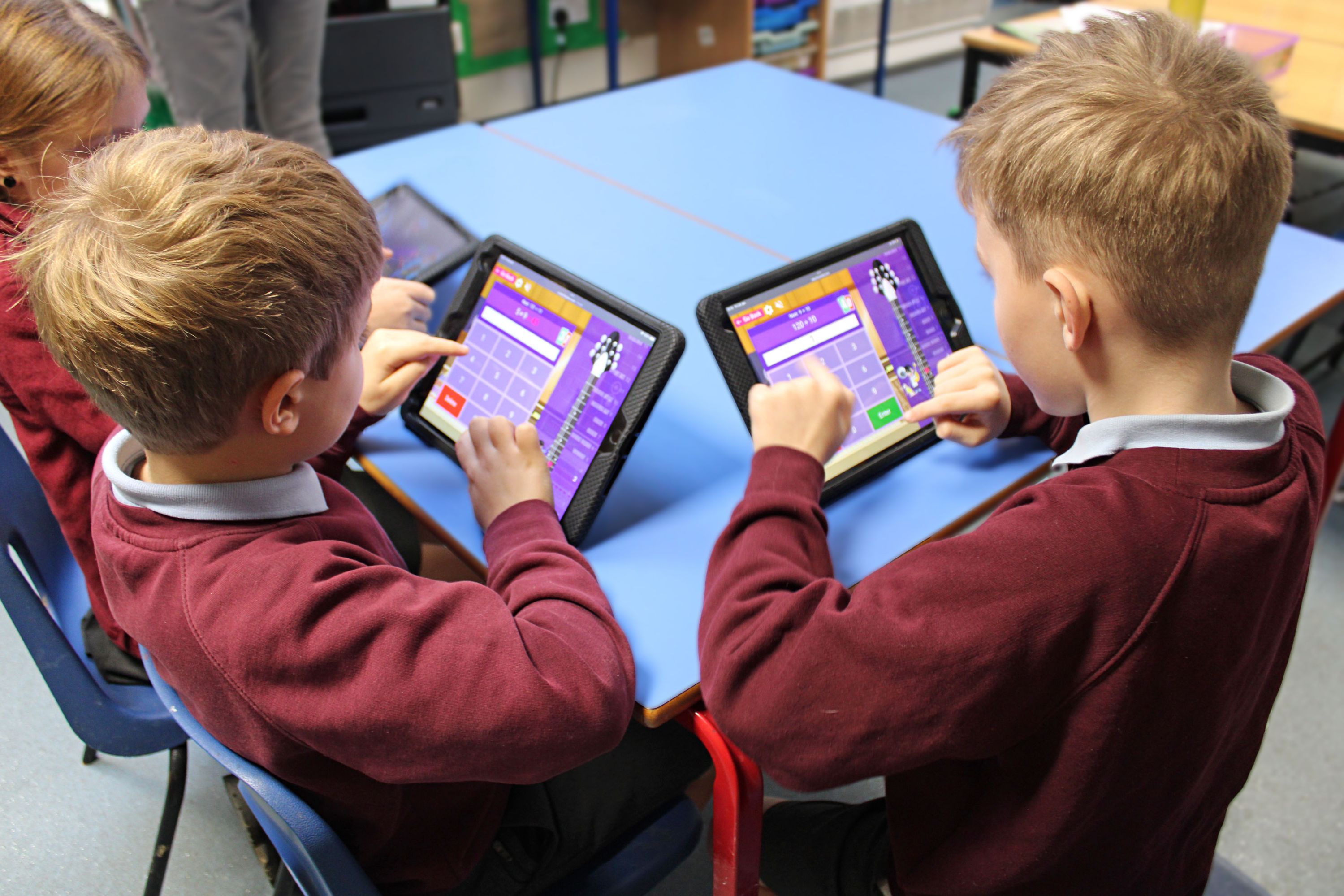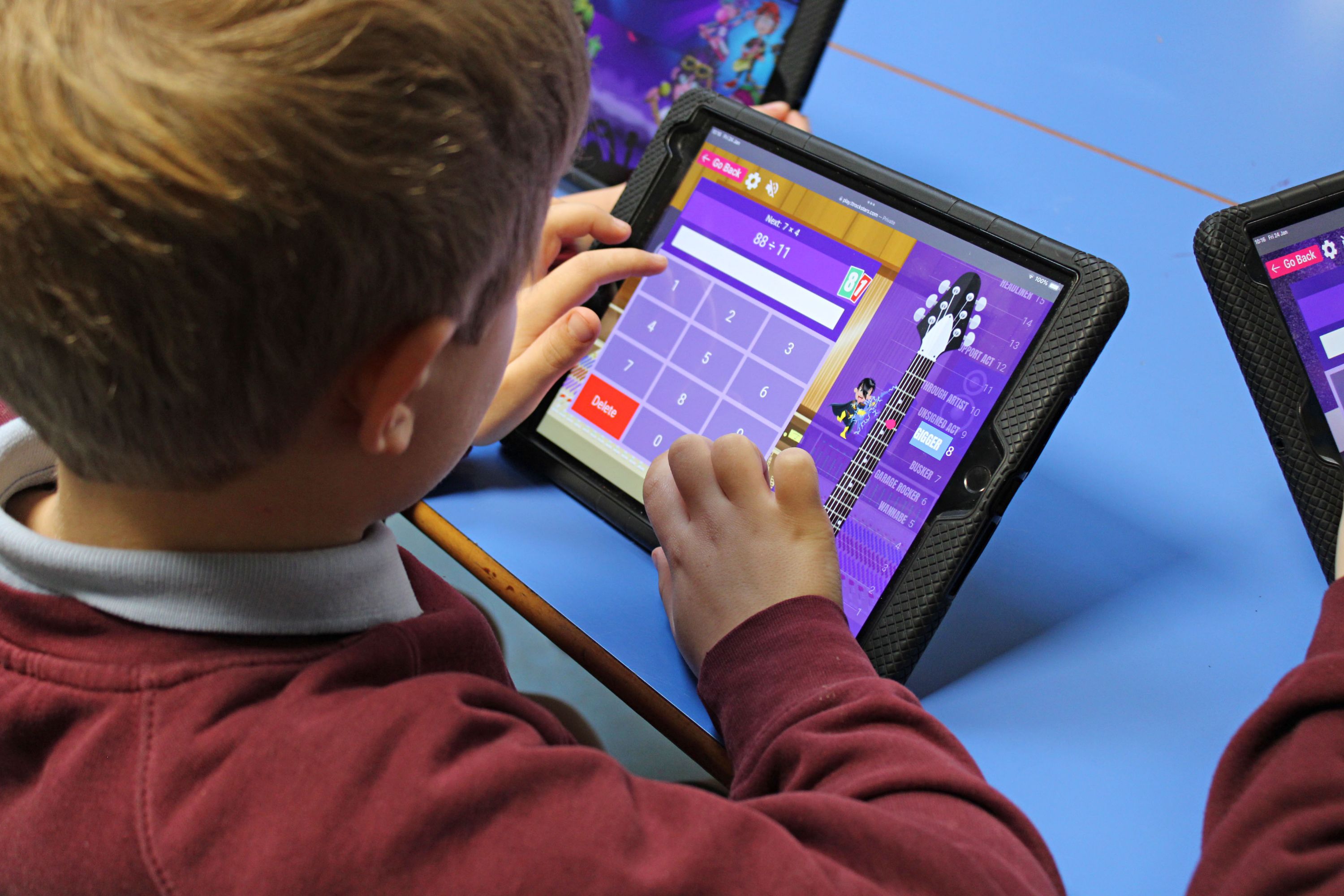Mathematics
Mathematics at Dobwalls Primary School
"Good mathematics is not about how many answers you know...It's about how you behave when you don't know."
National Curriculum aims:
The 2014 National Curriculum for Mathematics aims to ensure that all children:
- become fluent in the fundamentals of mathematics, including through varied and frequent practice with increasingly complex problems over time, so that pupils develop conceptual understanding and the ability to recall and apply knowledge rapidly and accurately
- reason mathematically by following a line of enquiry, conjecturing relationships and generalisations, and developing an argument, justification or proof using mathematical language
- can solve problems by applying their mathematics to a variety of routine and non-routine problems with increasing sophistication, including breaking down problems into a series of simpler steps and persevering in seeking solutions.



Statement of Intent:
At Dobwalls School, we strive to deliver a maths curriculum that encourages learners to use maths in all aspects of their daily lives and we show children how maths is interwoven into all the subjects they study. The skills they develop and acquire in their mathematics lessons will aid them across the curriculum and beyond. We strive to give children 'real-life' knowledge of maths allowing them to see how it can be used in different professions as they grow leading to aspirational thinking around their future careers - who knows, the next big scientific or mathematical breakthrough could come from a Dobwalls student!
As our pupils progress, we intend to use Maths as a foundation for understanding the world around them, develop an appreciation and curiosity into the beauty and power of mathematics and make links to other areas of the curriculum. Mathematicians at Dobwalls will spend time becoming true 'masters' of content, applying the skills they are taught to enable them to solve a range of problems and explain their reasoning mathematically. We value that mistakes and misconceptions are an essential part of learning and addressing these are fundamental approach to our teaching.

Implementation:
- In school, we follow the National Curriculum and use White Rose Schemes of Work as a guide to support teachers with their planning and assessment which is known as our Dobwalls Maths Spine - see below for link to this.
- Daily arithmetic, timetable and reasoning lessons.
- Key Stage Two have weekly 'real-life maths' lessons
- Lesson Design:
- Daily arithmetic practice
- Times table practice
- Taught maths session including clearly share learning objective, key vocabulary (known as 'star' words), modelled examples, guided practice and Independent fluency, variation, reasoning and problem-solving
- Concrete/pictorial/abstract methods used to teach key mathematical concepts and supports to ensure all children including those with SEND are able to access their learning:
Concrete is the 'doing' stage. During this stage, students use concrete (physical) objects to model problems.
Pictorial is the 'seeing' stage. Here, visual representations of concrete objects are used to model problems. This stage encourages children to make a mental connection between the physical objects they have handled and the abstract pictures, diagrams or models that represent the objects from the problem.
Abstract is the 'symbolic' stage, where children use abstract symbols to model problems. Students will not progress to this stage until they have demonstrated that they have a solid understanding of the concrete and pictorial stages of the problem.
- The school calculation policy (see below) has been designed to support teachers and parents in understanding the methods in each year group for number and calculation and ensure consistency in teaching.
- Concrete resources are readily available in every classroom to assist demonstration of a mathematical concept appropriate to that year group.
- New concepts are taught through clear modelling and are presented initially in a wide range of real-life contexts to improve understanding.
- Weekly real life maths lessons in Key Stage Two support deeper reasoning and allow deeper understanding of maths concepts based on real life situations.
- 'Maths Talk' takes place in every lesson to ensure efficiency of finding a solution, addressing misconceptions, making sense of a problem and reinforcing and applying previous learning.
- At the start of each new topic and lesson, key vocabulary is introduced known as 'star' words and revisited regularly to develop language acquisition and is embedded as the topic progresses.
- All teachers ensure challenge is visible throughout the whole lesson, where children are asked to reason and prove their understanding in a wide variety of contexts.
- Children with additional needs are included in whole-class lessons and teachers provide scaffolding and relevant support as necessary. For those children who are working outside the year group curriculum, individual learning activities are provided to ensure their progress.
- Intervention groups are planned for underachieving children or children with additional needs to support learning.
- The online programme Mathletics and Times Tables Rockstars help children to continue learning at home inline with the mastery approach taught to them in school.
- The local Maths Hub group provides CPD and training for teaching staff to implement and further develop the mastery approach across the school.

Progression of Skills:
Below is an outline of progression in mathematics that we use to assist in the assessment of progress and achievement:
Dobwalls Primary School Maths Spine
Class Overviews
Below is an overview guide of what each year group will be learning in class over the year:
Updated overviews will be uploaded shortly...

Useful Links:
- Mathletics - https://login.mathletics.com/
- Timestables Rockstars - https://ttrockstars.com/
- Maths Playground – http://www.mathplayground.com/
- BBC Bitesize – http://www.bbc.co.uk/education
- Countdown Numbers Game - http://happysoft.org.uk/countdown/numgame.php
- 'Hit the Button' Timestables game - https://www.topmars.co.uk/maths-games/hit-the-button
- Topmarks Maths games - https://www.topmarks.co.uk/maths-games/5-7-years/counting
Here is a useful mathematics glossary resource that could be used at home to help understand specific vocabulary used in school:
National Curriculum Maths Glossary
Impact
2022 saw the first year of the Year 4 Multiplication Check. We scored an average score of 21.48.
(National average score was 19.8, Cornwall 18.2)
Enrichment:
Enrichment is an important part of the Maths learning at Dobwalls and aims to provide children with many wider curriculum opportunities. In the past these have included:
- Census Day with a range of maths learning linked to real life
- Whole-school enterprise project to raise money - sell products in the school summer fair.
- Years 1 and 2 'open classroom' to promote mastery Maths approach to parents.
- Year 6 'Fiver' challenge in the Summer term.
- 'Magic Maths' Day led by Magician Jon!

Year 6 Class Trip to Sherford, Plymouth
Camel Class enjoyed a fantastic trip to Plymouth to view an unwrapped home. They took part in maths related project management tasks which developed their maths skills brilliantly.









